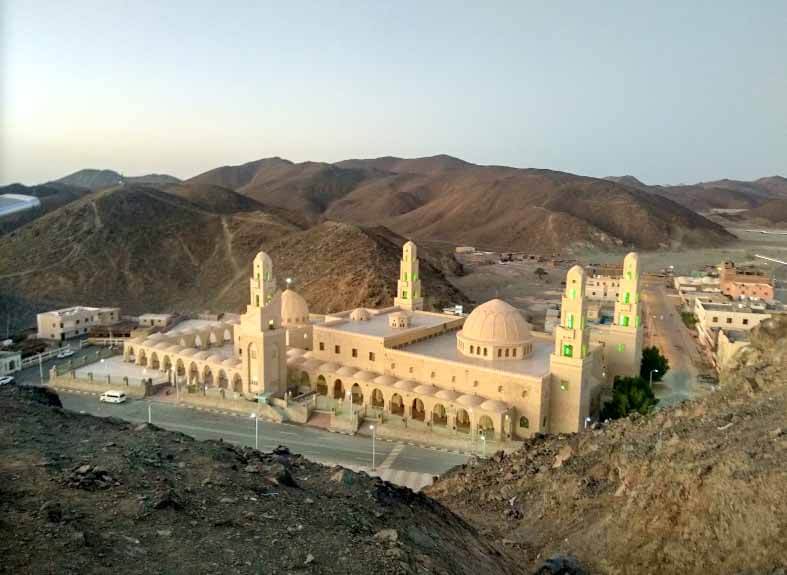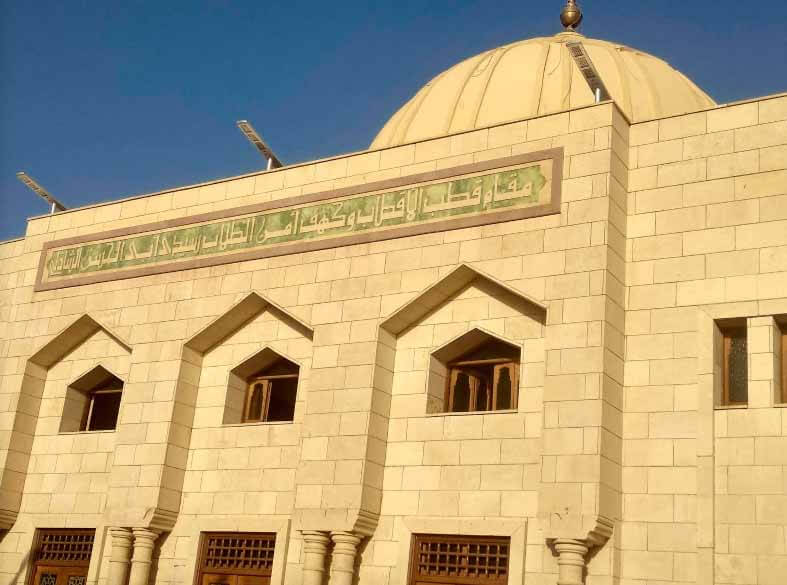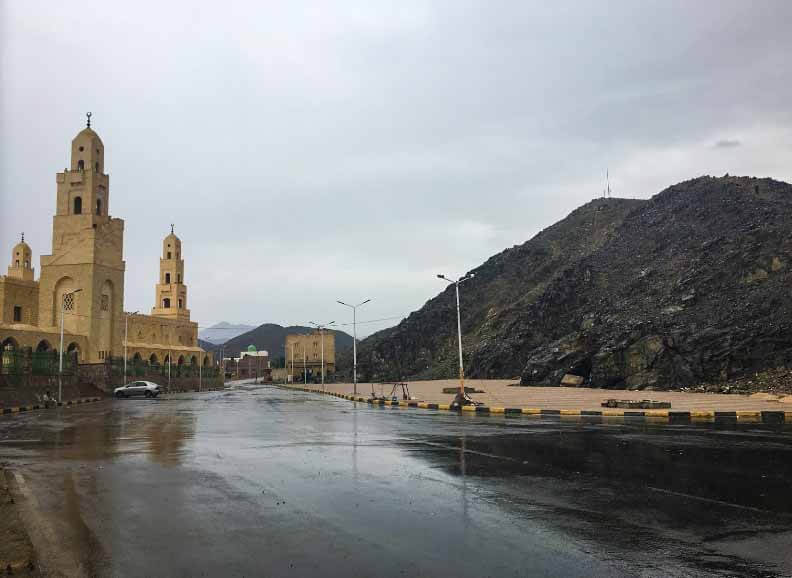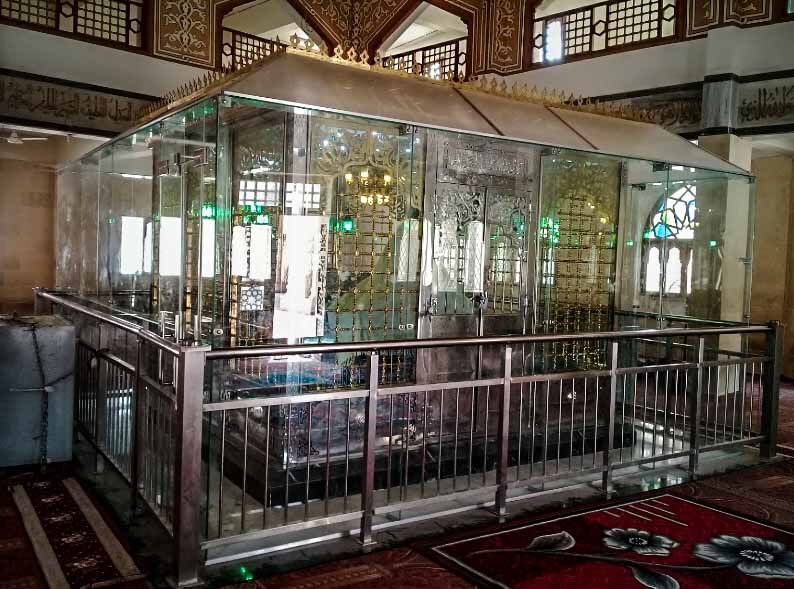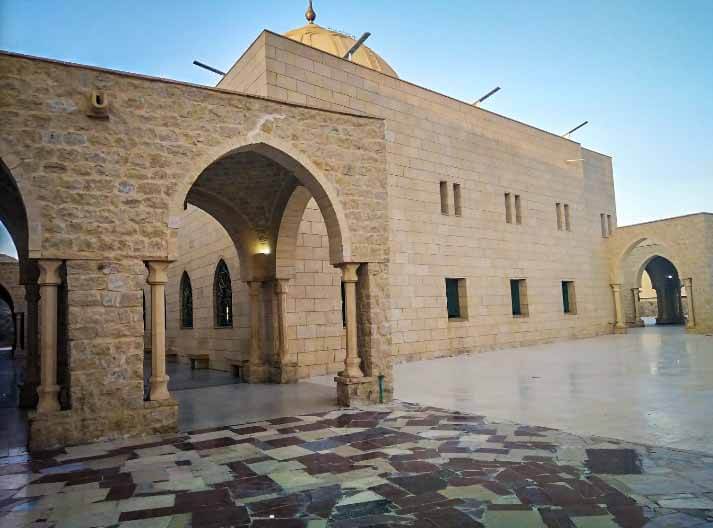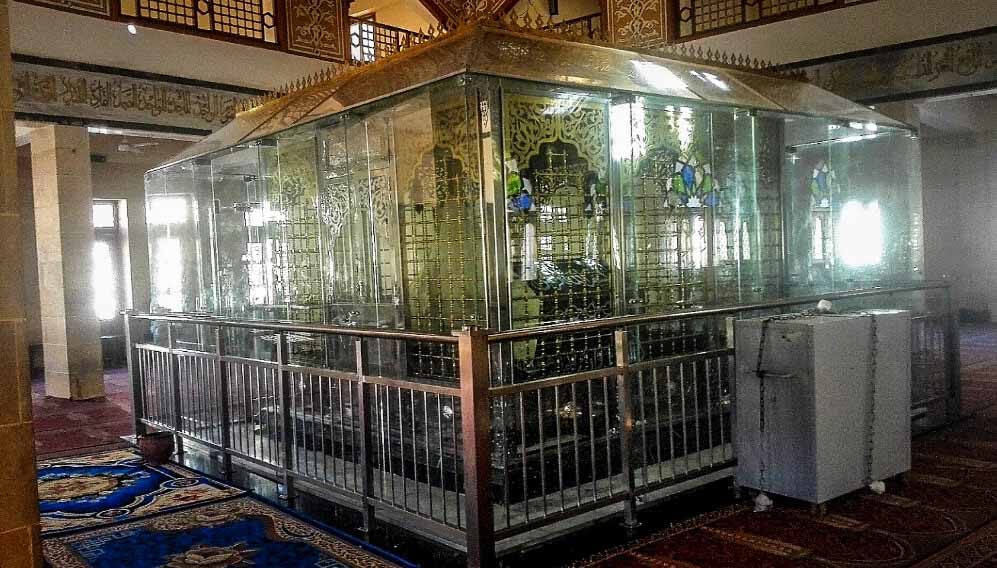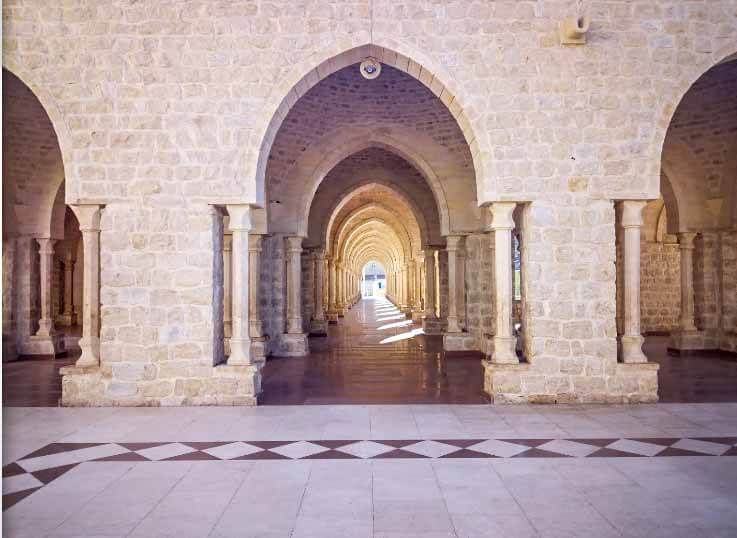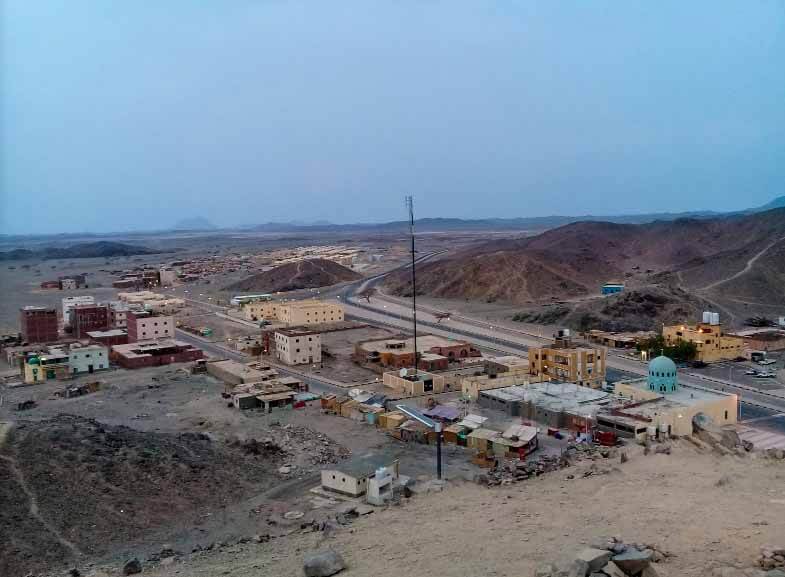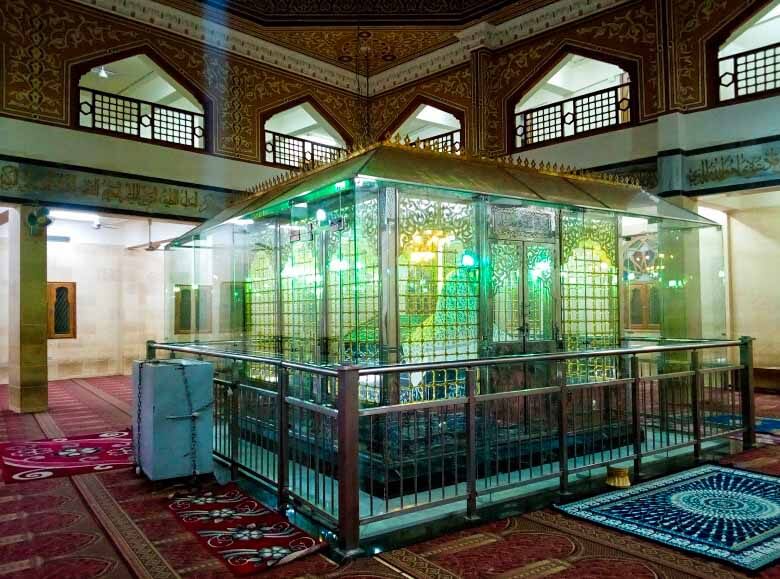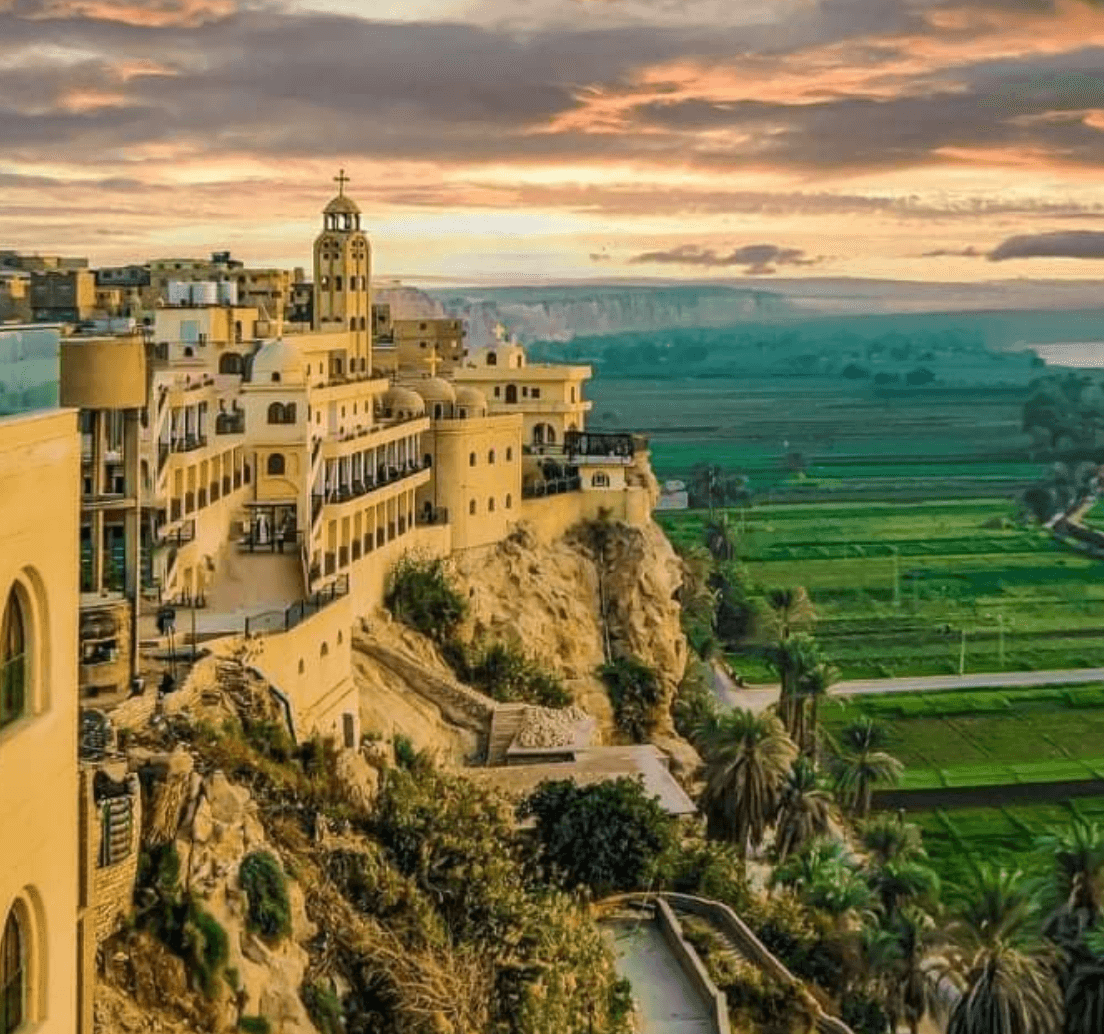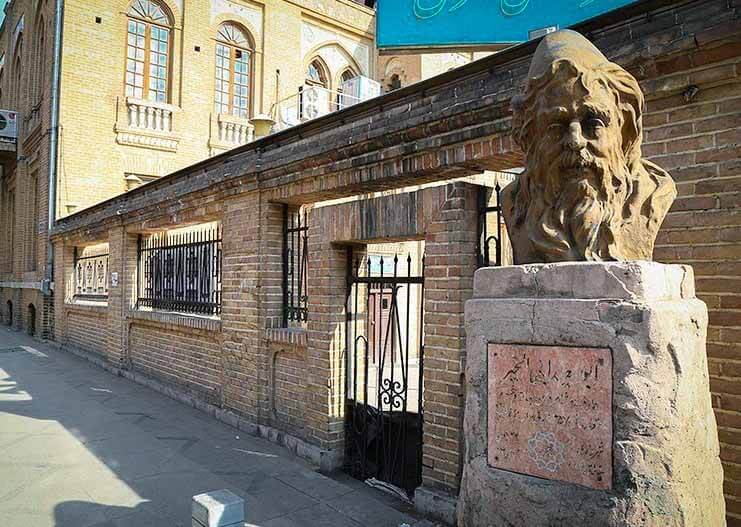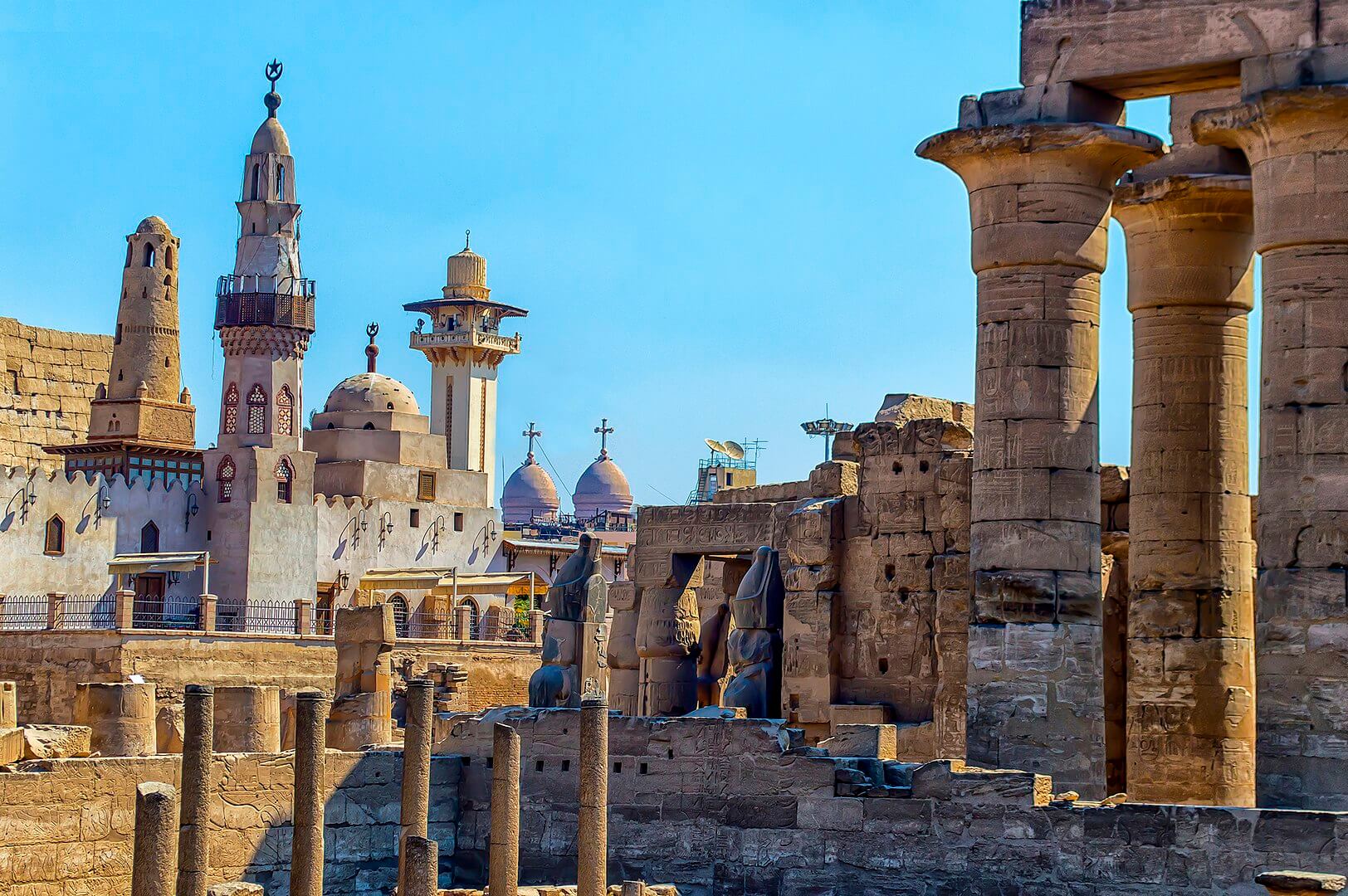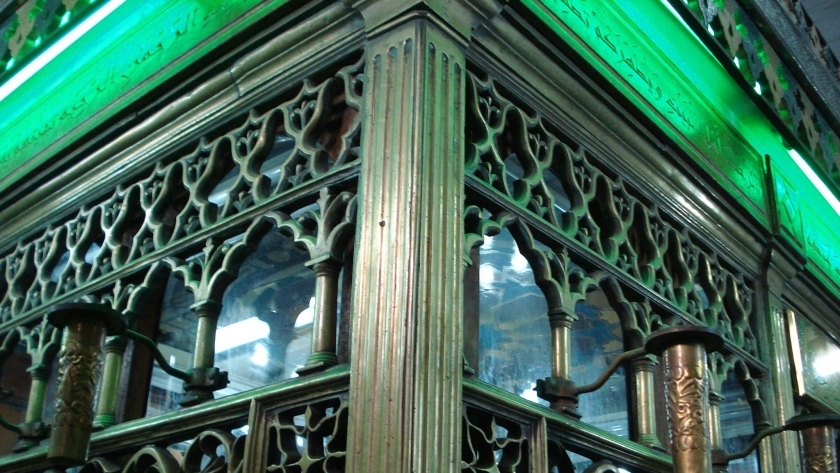Humaithara, Red Sea Governorate – Egypt
Coordinates: 24.200732, 34.635685
Hz. Abu’l Hasan al-Shadhili رحمة الله عليه was an influential Moroccan Islamic scholar and Sufi, founder of the Shadhili Sufi order.
Early life
He was born in a royal family of a business man in Bani Yafrah among the Berber Ghomara tribe, near Ceuta in the north of Morocco, also known as the Rif region, in 1196.
As a young man, Hz. Abu’l Hasan رحمة الله عليه was hesitating between living the life of an ascetic in the wilderness in order to give himself up totally to worship and invocation, or to return to the towns and settlements to be in the company of the scholars and the righteous.
He studied in Fes and moved to Alexandria in 1244. In Iraq he met the Sufi master al-Wasiti, who advised him that he could find his Spiritual Master (Sheikh) in the country Abul Hasan had travelled from: Abd as-Salam ibn Mashish, the great Moroccan spiritual master.
Under his guidance, Hz. Abu’l Hasan رحمة الله عليه attained enlightenment and proceeded to spread his knowledge across North Africa, especially in Tunisia and Egypt, where he is buried.
He founded his first zawiya in Tunis in 1227. He passed away in 1258 in Humaithra, Egypt, while he was on his way to the pilgrimage in Mecca.
In Egypt
In the year 642/1244, the sheikh, once again had a vision. Abu’l Hasan said:
I saw the Prophet ﷺ in a dream and he said to me, “O Ali, go to Egypt and raise the ranks of forty true followers (siddiqun) there.” It was the summer time and intensely hot and I said, “O Prophet of God ﷺ, the heat is very great.” He said, “Lo, the clouds will give you shade.” I said, “I fear thirst.” He replied, “Look, the sky will rain for you every day.” He promised me many miraculous gifts (karamat) on my journey. So I instructed my followers to prepare to depart for Egypt.
He lived with his family on the top floor; another floor was converted into a tremendous mosque where he gave public instruction; and another floor was converted into a great zawiyah for his disciples, with cells for meditational retreat.
In Egypt, likewise, his order was greatly successful, drawing into its ranks many court officials, great religious scholars like Izz al-Din ibn ‘Abd al-Salam (d. 660/1262) or the Shafi ‘i traditionist al-Mundhiri (d. 656/1258), a host of Sufi figures, and individuals from different levels of society.
In the year 646/1248, he lost His vision, and it was in that state that he participated in the Battle of Al Mansurah in Egypt, which stopped the Seventh Crusade headed by Saint Louis of France.
Death
Shortly before Hz. Abu’l Hasan al-Shadhili رحمة الله عليه started on his last pilgrimage to Mecca sharif, the city of Baghdad fell to the conquering Mongols, thus ending the long reign of the Abbasids there and ushering in a new epoch in the history of Islam.
The sheikh was accompanied by a mass of his disciples; but he fell ill in the eastern desert of Egypt, in a place called Humaithara (now: Sheikh Shazly), and there he died in the year 656/1258.
Ideas
When asked who his spiritual master was, he used to reply, “I used to be the close follower of Abd as-Salam ibn Mashish, but still I am drinking the water of wisdom from five ponds Jibril, Mikhail, Israfil, Izra’il, Rooh.”
Shaykh Abul-Abbas al-Mursi رحمة الله عليه, who succeeded Hz. Abu’l Hasan al-Shadhili رحمة الله عليه as the spiritual master of the Order, was asked about the knowledge of his spiritual master and replied,
“He gave me forty sciences. He was an ocean without a shore.” He taught his close followers to lead a life of contemplation and remembrance of Allah while performing the normal everyday activities of the world. He disliked initiating any would-be follower unless that person already had a profession. His admonition to his close followers was to apply the teachings of Islam in their own lives in the world and to transform their existence.
Hz. Abu’l Hasan al-Shadhili رحمة الله عليه wrote several devotional recitations, prayers and letters, some of which remain today.
One of the best known poems is his “Litany of the Sea” (hizb al-Bahr).
Shrine of Imam Shadhili
The Shrine of Hz. Abu’l Hasan al-Shadhili رحمة الله عليه is located in Humaithara, Egypt. It takes around 3 hours by road from Aswan, and 4–5 hours from Edfu.
Description
After the late 13th century, the number of pilgrims visiting the grave of Imam Shadhili increased and the shrine was extended in order to accommodate large numbers of people.
The well of Humaithara
There is a well outside the shrine. Hz. Abu’l Hasan’s رحمة الله عليه gargled water was poured into this well on the day before his death. The water in this well is located in the midst of a desert but never goes dry throughout the year. The water of this well is pure and it serves the drinking water needs of the local villages.


